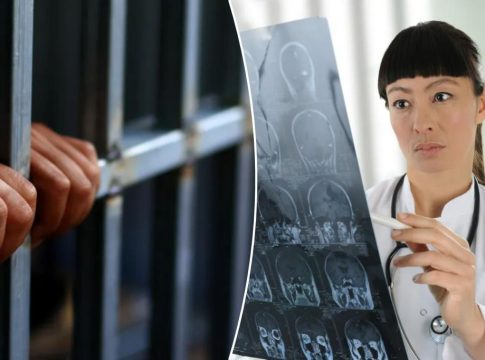Brain Injuries Linked to Criminal Behavior: New Study Sparks Debate in Courts
A recent study has opened a new dialogue about the intersection of neuroscience and criminal responsibility, suggesting that brain damage may explain violent and criminal behavior in certain individuals.
Notable Findings from Neuroscience Research
Released by a team from the University of Colorado School of Medicine, the study emphasizes the significant link between traumatic brain injuries (TBIs) and criminal behavior. The research underscores that the right uncinate fasciculus, a crucial area within the brain involved in emotional regulation and decision-making, is often injured in those committing crimes following head trauma from strokes, tumors, or TBIs.
The study examined brain scans of 17 individuals who began exhibiting criminal behavior post-injury and compared these to over 700 scans from patients dealing with various neurological issues such as memory loss. "When the connection is disrupted on the right side, a person’s ability to regulate emotions and make moral choices may be severely impaired," stated Dr. Christopher M. Filley, co-author of the study.
Understanding the Prevalence of TBIs in Prisons
Statistics reveal a troubling trend: between 25% and 87% of inmates in U.S. prisons and jails have a history of head injuries, starkly contrasting with just 8.5% of the general population. Notably, incarcerated individuals are more likely to have moderate to severe TBIs, often sustained before their first offenses.
Legal Implications and Ethical Questions
The findings are prompting defense attorneys to incorporate neuroscience into courtrooms, arguing brain injuries as potential explanations for criminal behavior. Judge Morris B. Hoffman noted, “We’re seeing way more of it in the courts than we used to, and I think that’s going to continue,” referencing the increasing reliance on such evidence in legal defenses.
The adoption of neuroscience in legal contexts is not insignificant; an analysis identified over 2,800 legal cases from 2005 to 2015 where defendants used neuroscience as part of their defense strategy. Approximately 20% of these cases yielded favorable outcomes, including new hearings or reduced charges.
Addressing Controversial Ethical Dilemmas
Dr. Isaiah Kletenik, the study’s lead author, raises critical ethical considerations about culpability and free will, questioning how brain injury should influence perceptions of criminal behavior. "Causality in science is not defined the same way as culpability in the eyes of the law," he remarked, signaling that these findings could reshape the judicial landscape.
As discussions continue surrounding the implications of these findings, the study serves as a crucial step in unraveling the intricate relationship between neuroscience and behavior, seeking a better understanding of how brain function may influence actions that disrupt societal norms.
This developing story will continue to be monitored for updates as new insights emerge from both the medical and legal fields.

Focuses on crime, public safety, and regional events.
Bio: Marcus is a community-based journalist passionate about reporting impactful stories that matter most to readers.

